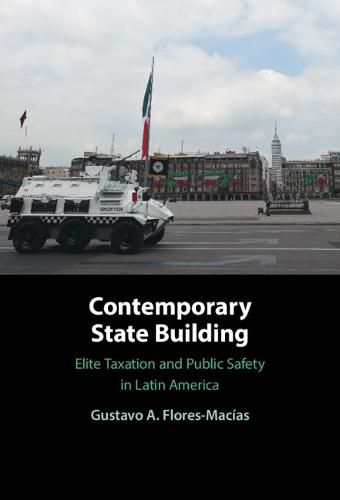Readings Newsletter
Become a Readings Member to make your shopping experience even easier.
Sign in or sign up for free!
You’re not far away from qualifying for FREE standard shipping within Australia
You’ve qualified for FREE standard shipping within Australia
The cart is loading…






If economic elites are notorious for circumventing tax obligations, how can institutionally weak governments get the wealthy to shoulder a greater tax burden? This book studies the factors behind the adoption of elite taxes for public safety purposes. Contrary to prominent explanations in the literature on the fiscal strengthening of the state - including the role of resource dependence and inequality - the book advances a theory of elite taxation that focuses on public safety crises as windows of opportunity and highlights the importance of business-government linkages to overcome mistrust toward government from corruption and lack of accountability. Based on evidence from across Latin America and rich case studies from experiences in Colombia, Costa Rica, El Salvador, and Mexico, the book provides scholars and policymakers with a blueprint for contemporary state-building efforts in the developing world.
$9.00 standard shipping within Australia
FREE standard shipping within Australia for orders over $100.00
Express & International shipping calculated at checkout
If economic elites are notorious for circumventing tax obligations, how can institutionally weak governments get the wealthy to shoulder a greater tax burden? This book studies the factors behind the adoption of elite taxes for public safety purposes. Contrary to prominent explanations in the literature on the fiscal strengthening of the state - including the role of resource dependence and inequality - the book advances a theory of elite taxation that focuses on public safety crises as windows of opportunity and highlights the importance of business-government linkages to overcome mistrust toward government from corruption and lack of accountability. Based on evidence from across Latin America and rich case studies from experiences in Colombia, Costa Rica, El Salvador, and Mexico, the book provides scholars and policymakers with a blueprint for contemporary state-building efforts in the developing world.